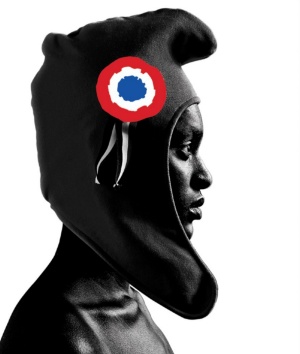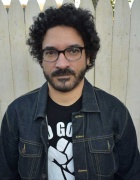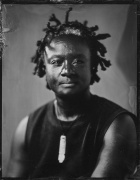Rethinking Universalism in 21st Century France

This seminar seeks to define universalism à la française, to think about its futures and forms in the 21st century. We will first trace the genealogy of universalism as it has been cemented in republican discourse: From where does it originate? To what extent is it an invention of the Enlightenment? What about its many masks from the 18th century onwards -Progress, Reason, Trade as illustrated on colonial vignettes? How did it become the notion in which generations of intellectuals and political actors saw the Alpha and the Omega of the Republic? Yet, behind the veil of the “civilizing mission,” parts of this universalism served as an instrument of conquest that allowed the Ancien Régime to codify the slave trade and organize the slave system in the Caribbean. While universalizing the Rights of Man and of the Citizen, the abolitionist Republic of 1794 allowed the colonists to wage an all-out war against the insurgents in Saint-Domingue, and the Third Republic carved an inferior legal status for colonial subjects thanks to the Code de l’indigénat. Entwined with colonial reason, this brand of universalism could no longer be considered a project for humanity, but rather an ideology of the Universal at the service of European superiority.
Our exploration will focus on key questions: Can one sketch a critique of universalism without awakening the demons of particularism and fascist passions? Without falling into the trap of identity as the basis of all and any legitimacy? What do the current upheavals in the articulation of race, class, gender and citizenship tell us about France? How have French authorities and intellectuals come to see critique and analysis from the margins as attacks on universalism? What understanding of the term, its purpose and its impact do such attitudes imply? Can 21st-century antiracism and universalism be reconciled in France?
Our seminar will follow thinkers who deploy themselves into the folds of universalism. From Ronsard to Montaigne, we will look for lessons to be drawn from a return to the pre-Enlightenment notion of universalism as humanism. The writings of Suzanne and Aimé Césaire, Paulette Nardal and of a new generation of French scholars, artists and racial-justice activists will help us rethink universalism not as crystallized, but rather as a fluid disposition, a dynamic work in progress never completed, always to be redesigned.
--Mame-Fatou Niang, Visiting Melodia E. Jones Endowed Chair
Please preregister for individual events. After registering, you will receive a confirmation email containing information about joining the event.
Monday September 27
4:10 p.m. | Haiti in/and French Universalism

Marlene Daut • University of Virginia
Marlene Daut is Professor of African-American and African Studies at the University of Virginia. She specializes in Caribbean, African American, and French colonial literary and historical studies. Her books include Baron de Vastey and the Origins of Black Atlantic Humanism (Palgrave Macmillan, 2017) and Tropics of Haiti: Race and the Literary History of the Haitian Revolution in the Atlantic World, 1789–1865 (Liverpool University Press, 2015). She is co-editor of the forthcoming volume, Haitian Revolutionary Fictions: An Anthology (UVA Press 2021).
Monday October 4
4:10 p.m. | Universalisme et Pseudo-Humanisme

Grégory Pierrot • University of Connecticut at Stamford
Grégory Pierrot is Associate Professor of English at the University of Connecticut at Stamford. He is the author of Decolonize Hipsters (OR Books, 2021), The Black Avenger in Atlantic Culture (UGA Press, 2019), and co-editor of the forthcoming An Anthology of Haitian Revolutionary Fictions (UVA Press, 2021). He is also a translator, and co-host of the Decolonize That! webcast series with Bhakti Shringarpure. His writing has appeared in Africa Is A Country, L.A. Review of Books, Libération, Public Books, Warscapes and scholarly journals such as The African American Review, Criticism, Atlantic Studies and more.
Monday October 11
4:10 p.m. | Unsilencing Martinique

Audrey Célestine • University of Lille, France
Audrey Célestine is a social scientist and an Associate Professor in American studies at the University of Lille (France). Her work focuses on migration, memory, race and identity in France, the French Caribbean (Martinique, Guadeloupe) and the United States. Her first book, La Fabrique des identités, deals with the collective trajectory of Puerto Ricans in New York and French Caribbeans in Paris since the mid-20th century. It was published in 2018 by Karthala. She also published "Une famille française. Des Antilles à Dunkerque en passant par l'Algérie" (Textuel, 2018) on the impact of migration, exile, colonization, race and identity in the individual trajectories of 4 generations of an "ordinary" French family. She is currently following two lines of research investigating circulations of people and ideas between the Americas and France. The first one is a collective project, funded by the French ANR, on the policy of organized migration between Martinique, Guadeloupe to mainland France and its impact on public policies but also the families and professional trajectories of French Caribeans. The second deals with the definitions and forms taken by "identity politics" in France, the U.S. and the French Caribbean.
Presentation in English
Reading Materials:
- Célestine, Audrey. 2019. TA-NEHISI COATES AU PAYS D'AIMÉ CÉSAIRE. À PROPOS DE LA RÉCEPTION DE BETWEEN THE WORLD AND ME ET WE WERE EIGHT YEARS IN POWER: AN AMERICAN TRAGEDY
- Célestine, Audrey. 2020. Politique Culturelle et Politique de l'Identité en Martinique
YouTube video (with English subtitles)
Monday October 18
4:10 p.m. | Artist Talk

Bintou Dembélé • Artist, French hip-hop
A prominent artist on the French hip-hop scene, Bintou Dembélé has collaborated with artists such as Denis Darzacq, Mohamed Bourouissa, and Sophiatou Kossoko.
Shaped by a wide range of influences, her work incorporates repetitive music with rhythmic polyphonies and Street Dance. Bintou Dembélé explores marginalized cultures as well as ritual and corporeal memories, questions notions of gender, probes the wounds of the past and the possibility to move beyond them through strategies of reappropriation and “marronnage.” Her performances draw on various aesthetics from the worlds of dance, music, voice, and the visual arts.
Bintou Dembélé is the founder of Rualité, a structure through which she produced L’Assise (2004), LOL (2008), Mon appart’ en dit long (2010), Z.H. (2014), S/T/R/A/T/E/S-Quartet (2016), and Le Syndrome de l’initié.e (2018). Clément Cogitore asked her to choregraph Les Indes galantes at the Paris National Opera: a short film gone viral on the digital platform 3e Scène (2017) was followed by the full choreography of Rameau’s opéra-ballet at the Opéra Bastille (2019). As part of its exhibition Opéra Monde. La quête d’un art total (2020), the Centre Pompidou-Metz gave her complete freedom to create, which led to the creation of Les Indes Galantes #3. In 2020, the Lyon National Opera invited her to put together a solo performance for dancer Merel van Heeswijk.
An associate artist at Ateliers Médicis (Clichy-sous-Bois / Montfermeil), she has also been an artist-in-residence at Villa Médicis (Rome) and Villa Albertine (Chicago). She is one of ten international artists invited to take part in the 10-year anniversary celebration of the Centre Pompidou-Metz. On this occasion, she directed the dance film -s/t/r/a/t/e/s-.
1. Mariannes Noires (2016)
https://vimeo.com/51863373
password: mnspringsummer21!
2. Film -s/t/r/a/t/e/s- // Centre Pompidou-Metz // 2020
https://vimeo.com/555598745
password : stratescpm
3. Behind the scenes // Les indes galantes
https://www.youtube.com/watch?v=JbOi7eQ5IV0&t=1s
4. Ames sensibles s'abstenir
Love is the message, the message is death // Arthur Jafa // 2016
https://www.youtube.com/watch?v=lKWmx0JNmqY
5. Ceci n'est pas une performance d'Ana Pi //
6. Articles
--Africultures // Isabelle Launay
http://africultures.com/memoires-ruses-et-detours-des-danses-diasporiques-selon-bintou-dembele/
--L'hebdo le 1 //
https://le1hebdo.fr/journal/tre-noir-en-france/301/article/je-suis-d-origine-hip-hop-3900.html
https://le1hebdo.fr/journal/jetouffe/301/1/article/j-touffe-3898.html
Monday October 25
4:10 p.m. | Haiti: 18th Century Histories, 20th Century Echoes

Malick Ghachem • MIT
Malick W. Ghachem's primary areas of concentration are slavery and abolition, criminal law, and constitutional history. He is the author of The Old Regime and the Haitian Revolution (Cambridge University Press, 2012), a history of the law of slavery in Saint-Domingue (Haiti) between 1685 and 1804. The book received the American Historical Association’s J. Russell Major Prize for the best work in English on French history and was co-winner of the Caribbean Studies Association’s Gordon K. and Sybil Lewis Prize for the best book published in the field of Caribbean studies over the past three years. He teaches courses on the Age of Revolution, Slavery and Abolition, American criminal justice, and other topics.
He writes occasionally on topics in American and comparative constitutional law, and has published a wide range of articles in the fields of French colonial and American legal history, among them “The Antislavery Script: Haiti’s Place in the Narrative of Atlantic Revolution,” in Scripting Revolution: A Historical Approach to the Comparative Study of Revolutions, ed. Keith M. Baker and Dan Edelstein (Stanford, CA: Stanford University Press, 2015), 148-167; “The Colonial Vendée,” in The World of the Haitian Revolution, ed. David Geggus and Norman Fiering (Bloomington: Indiana University Press, 2009), 156-176; and “From Emergency Law to Legal Process: Herbert Wechsler and the Second World War,” co-authored with Daniel Gordon, 40 Suffolk University Law Review 333 (2007). Ghachem is the editor of “Slavery and Citizenship in the Age of the Atlantic Revolutions,” Historical Reflections/Réflexions historiques 29, no. 1 (2003). He is at work on a new study of the revolt against the French Indies Company in the 1720s and the rise of the plantation complex in colonial Haiti.
Monday November 1
4:10 p.m. | Decolonize the Everyday

Étienne Achille • Villanova University
Étienne Achille is Associate Professor of French and Francophone Studies at Villanova University. His research focuses on contemporary France from a postcolonial perspective, with a special interest in fiction and cultural history. He is the author of Mythologies postcoloniales. Pour une décolonisation du quotidien (with L. Moudileno, 2018), editor of Postcolonial Realms of Memory. Sites and Symbols in Modern France (with Ch. Forsdick et L. Moudileno, 2020) and has published a number of articles in reviews such as Contemporary French Civilization, Fixxion, Francosphères, French Cultural Studies, Modern and Contemporary France and MLN. His current book project deals with the colonial detail in contemporary French fiction.
Monday November 8
4:10 p.m.| Translating Memories

Pierre-Yves Bocquet •Fondation pour la Mémoire de l’Esclavage
Pierre-Yves Bocquet is a French senior official and an Inspector General of Social Affairs. Since 2020, he has been the deputy director of the Foundation for the Memory of Slavery (FME) in France. As special advisor and speechwriter of then-President François Hollande, from 2014 to 2017, he coordinated memory policies and national commemorations (World War I, World War II, War in Algeria, slavery and colonization). A music critic for the past 20 years, Pierre-Yves Bocquet is also the author of multiple books and a movie on American music.
La parole présidentielle et la mémoire
Le président thaumaturge de la mémoire : Jacques Chirac : Allocution de M. Jacques CHIRAC, Président de la République, prononcée lors des cérémonies commémorant la grande rafle des 16 et 17 juillet 1942.
https://www.fondationshoah.org/sites/default/files/2017-04/Allocution-J-Chirac-Vel-dhiv-1995.pdf
Le président et la « paix des mémoires » : Déclaration de M. François Hollande, Président de la République, sur la mémoire de l'esclavage, à Paris le 10 mai 2017
https://www.vie-publique.fr/discours/202847-francois-hollande-10052017-memoire-de-l-esclavage
Bocquet, Pierre-Yves. La création de la Fondation pour la Mémoire de l’Esclavage (2016-2019)
Bocquet, Pierre-Yves. Ce qui est attendu des leçons du passé
Monday November 15
4:10 p.m. | Artist Talk

Alexis Peskine
Andreas Gurewich, USA & Alexis Peskine, France •
Alexis Peskine’s signature works are large-scale mixed media ‘portraits’ of the African diaspora, which are rendered by hammering nails of different gauge, with pin-point accuracy, into wood stained with coffee and mud. By applying gold leaf to the nails he creates breathtaking composite images. He depicts figures that portray strength and perseverance, with energy reminiscent of the spiritually charged Minkisi ‘power figures’ of the Congo Basin. He also produces striking photography and video works.
After a 2016 showing at 1-54 Contemporary African Art Fair, London, Peskine had his first solo exhibition at October Gallery in 2017, with major exposure at international art fairs with the Gallery in the following years. Alongside this in 2016, Institut Francais, Dakar, Senegal held Raft of Medusa: Le retour de la vague, a solo exhibition of Peskine’s works. In 2018, his works were featured in the exhibition In Their Own Form at the Museum of Contemporary Photography, Chicago and Africa House’s Second Generation exhibition in New York.
He has been the recipient of many prestigious prizes including a Fulbright scholarship and Hennessy Black Masters Art Competition award. In the past decade, Peskine has worked with inner-city youth in France, Senegal and Brazil to create a number of monumental pieces, the largest of which was produced in France in 2012. Major museums and collectors including Peggy Cooper Cafritz; Laurence Graff OBE; the New Britain Museum of American Art, New Britain, USA; The Harvard Art Fogg Museum, Cambridge, USA; Pizzuti Collection of the Columbus Museum of Art, Columbus, USA; and Museum of Contemporary Photography (MoCP), Chicago, USA, have collected Peskine’s works.
RESCHEDULED: February 2022 date TBA
4:10 p.m. Moving lines, Unsettled spaces: A Writer's Talk|

Julien Suaudeau • Writer, Filmmaker
Please note that this presentation has been rescheduled to a date in February 2022 TBA.
Julien Suaudeau is a French American writer and filmmaker. He teaches French and Film at Bryn Mawr College, where he is the director of the Film Studies Program. His work focuses on the blind spots of the French colonial history and on the suppression mechanisms meant to blur its legacy in the political discourse, but also in the arts, popular culture, and language. His fourth novel, Le Sang noir des hommes (2019), tells the story of how the colonial rape gave birth to the ghosts that are haunting France today. By identifying and comparing the avatars of the "White order" in France and the US, Suaudeau emphasizes the contradictions of liberal innocence on racism, institutional violence, and social justice. In a new transdisciplinary project mixing contemporary art, urbanism, museum studies, and history, he is currently working on the reinvention of the postcolonial city. His book with film editor Yann Dedet, Le Spectateur zéro, received the Syndicat Français de la Critique's 2020 Award for Best French Book on Film.
RESCHEDULED: Monday February 14, 2022
4:10 p.m. | Academic Freedom in France

Éric Fassin • Paris 8 University, France
Please note that this presentation has been rescheduled to February 14, 2022, at 4:10 pm EST.
Éric Fassin is a professor of sociology in the Political Science Department and co-chair of the Gender Studies Department at Paris 8 University. He taught in the United States from 1987 to 1994 at Brandeis University and New York University, and at the École normale supérieure in Paris from 1994 to 2012. He is a founding member of the new Laboratoire d’études de genre et de sexualité – Research Center on Gender and Sexuality Studies (LEGS, CNRS / Paris 8 / Paris 10). His work focuses on contemporary sexual and racial politics, including immigration issues, in France, in Europe, and in the United States – often in a comparative perspective. He is frequently involved in the French public debates on issues his work addresses – from “gay marriage” and gender parity, to the politics and policies of immigration and race, as well as the evolution of the left. He has regularly written articles in English for publications such as French Politics, Culture & Society, French Historical Studies, Public Culture, differences, and Contemporary French Civilization.
Monday December 6
4:10 p.m. | Blackness is the Journey, Africana the Name

Maboula Soumahoro

Kaiama Glover
Maboula Soumahoro • University of Tours, France; and Kaiama Glover • Barnard College, Columbia University
Dr. Maboula Soumahoro is an associate professor in the English department of the University of Tours, France, where she also received her PhD. A specialist in the field of Africana Studies (Atlantic), Dr. Soumahoro has conducted research and taught in several universities and prisons in the United States and France: Bennington College, Columbia University (New York and Paris), Barnard College, Bard Prison Initiative (Bayview Correctional Facility), Stanford University (Paris), Sciences Po (Paris and Reims), the prisons in Bois-d’Arcy, Villepinte (juvenile detention), and Fresnes.
From 2013 to 2017, Dr. Soumahoro served as a member of the National Committee for the Memory and History of Slavery. Since 2013, she is also the president of the Black History Month (BHM), an organization dedicated to the celebration of Black history and cultures throughout the world.
Maboula Soumahoro is the author of Le Triangle et l’Hexagone, réflexions sur une identité noire (La Découverte, 2021), translated in English by Dr. Kaiama L. Glover as Black is the Journey, Africana the Name (Polity, 2021). This book was distinguished by the committee of the FetKann! Maryse Condé literary prize in 2020.
Professor of French & Africana Studies at Barnard College, Columbia University, Kaiama L. Glover is author of A Regarded Self: Caribbean Womanhood and the Ethics of Disorderly Being (Duke University Press, 2021) and Haiti Unbound: A Spiralist Challenge to the Postcolonial Canon (Liverpool University Press, 2010); co-editor of Maryse Condé: A Writer for Our Times (2021) and Marie Vieux Chauvet: Paradoxes of the Postcolonial Feminine (2016) both for Yale French Studies, of the Duke University Press Haiti Reader (2019), and of The Haiti Exception (Liverpool University Press 2016). Professor Glover has published translations of Frankétienne’s Ready to Burst (2014), Marie Chauvet’s Dance on the Volcano (2016), René Depestre’s Hadriana in All My Dreams (2017), and Françoise Vergès’s The Wombs of Women: Capitalism, Racialization, and Feminism.
She has also published articles in The French Review, Public Books, Esprit Créateur, Research in African Literatures, The Journal of Haitian Literature, Small Axe, French Forum, and The Journal of Postcolonial Writing, among other journals. She has been a contributor to The New York Times Book Review and a host of PBS series History Detectives: Special Investigations. Glover is an awardee of the PEN/Heim Foundation, the National Endowment for the Arts, the National Endowment for the Humanities, and the Mellon Foundation. She is founding co-editor of the journal sx archipelagos: a small axe platform for digital practice and founding co-director of the digital humanities project In the Same Boats: Toward an Afro-Atlantic Intellectual Cartography. Professor Glover was recently an inaugural Fellow at the Columbia Institute for Ideas & Imagination in Paris, France, and is currently a Fellow at the New York Public Library Cullman Center, where she is continuing work on an intellectual biography of Haitian author René Depestre titled "For the Love of Revolution: René Depestre and the Poetics of a Radical Life."
We gratefully acknowledge the financial support of the Melodia E. Jones Endowed Chair for this series.



